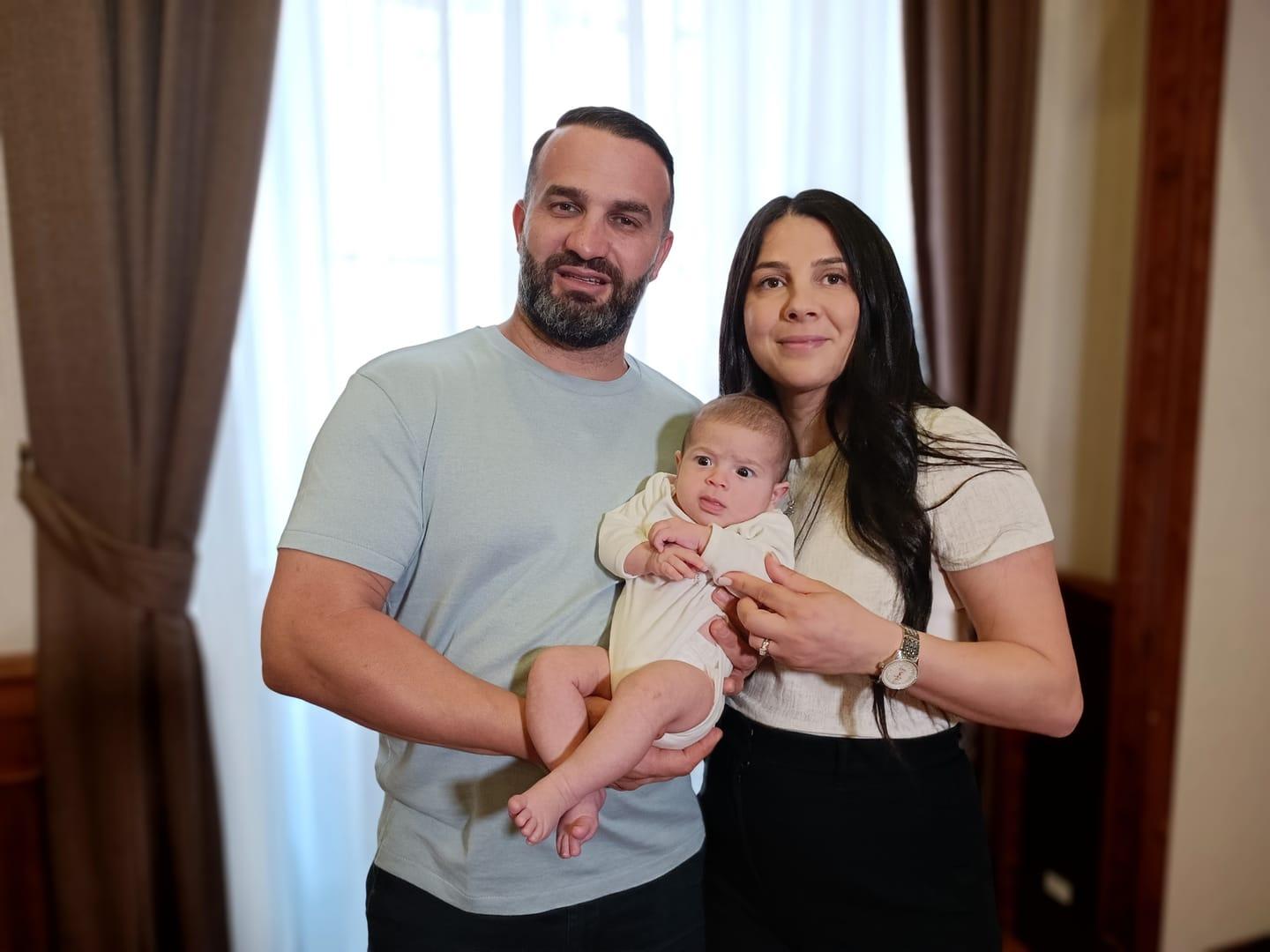ROME – What should have been an enjoyable outing for seven children in western Sydney on Feb. 1, 2020, turned into one of the worst road tragedies Australia has seen in recent times.
Leila and Daniel Abdallah lost half of their children in the blink of an eye; three of their six children died at the scene. They also lost a niece in the accident, and three more children, including their daughter, were severely wounded.
The man responsible for the tragedy was a driver under the influence of drugs and alcohol who was driving three times the speed limit.
In March of this year, the Abdallahs welcomed a new daughter, Selina, named by one of her sisters in honor of Sienna and Angelina, the two daughters killed in the accident.
The Maronite Christian couple somehow managed to forgive the driver who killed their children, and on Saturday, they will share their witness in the 10th World Meeting of Families, currently taking place in Rome.
RELATED: Families take center stage as Pope Francis kicks off World Meeting of Families
Their talk, “Forgiveness as a path to holiness,” will be the second to last presentation before the June 22-26 encounter closes.
In 2020, the news coverage of the accident quickly turned from tragedy to amazement over Leila’s public forgiveness of the driver: “I don’t hate him. I think in my heart I forgive him, but I want the court to be fair.”
Opinion columnists questioned her decision to forgive a man who’d run over seven children, her decision to hold on to her faith when faced with such tragedy, and her call for those who offered help to pray the rosary for her children.
Following her request, thousands gathered at the site of the accident every night to pray the rosary; and they kept coming until the funeral.
Speaking with Crux on Thursday, Leila said, “Forgiveness at that time, I believe, came from the Holy Spirit.”
“I’ve been practicing forgiveness all my life, on a daily basis: when you forgive your parents, your siblings, your friends, your spouse,” she said. “These are all small acts of forgiveness, but overall, you have to start forgiving the little things in order to be able to forgive the big things.”
During the first year after the tragedy, Daniel said, he was grieving and living in the past. But then he experienced “a God moment,” during which he felt God was urging him to stop looking behind for his children and see that “they are in front of you.” This has allowed him to change his attitude, and instead of being constantly brought down by the tragedy, he wakes up every day knowing that it brings him “a day closer to reuniting with them. Each anniversary is a year closer to reuniting with them. Death has now become something beautiful; it is no longer something foreign for us. It is a difficult time, it doesn’t dull the pain, but it helps you focus on the next life.”
The “next life,” both agreed, is what truly matters, to the point that Daniel considers parenthood his most important job, and it involves only one goal: “Helping them get to heaven.”
For this reason, he said he would encourage all the parents who are mourning the loss of a child to try and look ahead, with the knowledge that their children are “preparing a home for them in heaven.”
“Death is part of life, and the Bible is clear: We will all die,” Leila said. “And we should be preparing for that day. I also believe that our children don’t belong to us, they are here for us to care for them, but they are children of God and they belong to him, and our job is to get them ready to meet the Lord.”
She also said that in this life, “we are all called to suffer. When Christ became man, he carried his cross and suffered. But what we are suffering here does not compare to the joy waiting for us in heaven, where there is no pain, no agony, no hunger. All our suffering here is temporary; offer it to Jesus and God.”
Throughout their interview with Crux, the conversation was repeatedly interrupted: Diapers needed to be changed, children needed to be fed or accompanied to the bathroom. But time and time again, as the recording was paused and then resumed, Leila repeated the same advice to all: “Pray, forgive unconditionally, repent, go to confession, stay humble.”
“We are all called to be saints, as a family,” she said. “You don’t have to be a nun to be a saint. You can find hope in tragedy, embrace pain, and forgive unconditionally. Always forgive unconditionally.”
The Abdallahs created the i4give Day as a remembrance of the four children who died in the accident, and it has become recognized by the national government as a national week of forgiveness, encouraging people to talk about it and to think about how it applies in their lives, whether it be families, communities, interfaith encounters, and all walks of life.
They focus on forgiveness because, Daniel said, had it not been for this, “I would have lost my entire household, not half of it.” Had he not been focused on forgiveness, he would instead have “obsessed with the driver and his family, and on getting back at them. You have to find a greater good, that is a reason for forgiving. In our case, obedience to our Heavenly Father, and our three remaining children.”
He pointed out that 65 percent of marriages fall apart after the loss of a child. Yet, when they lost half of them, Leila told him that she could not leave him because “you remind me of Antony, you look like Angelina and walk like Sienna.”
“If we see our partners in the perspective of the love we have for our children, things change,” Daniel said. “We still argue, and it will never change. It is being able to forgive that matters.”
Throughout their grieving journey, Leila said, having one another was key, as it allowed her to be weak, knowing he would be strong, and vice versa.
“There were moments during the funeral, the burial and during our journey of grieving, looking at him I still felt like I am blessed, because I still have him next to me,” she said. “Forgiveness is the key to a long-lasting relationship, and it has brought our marriage closer, helping us look forward to the future. And it has given us our miracle daughter Selina.”
Follow Inés San Martín on Twitter: @inesanma














